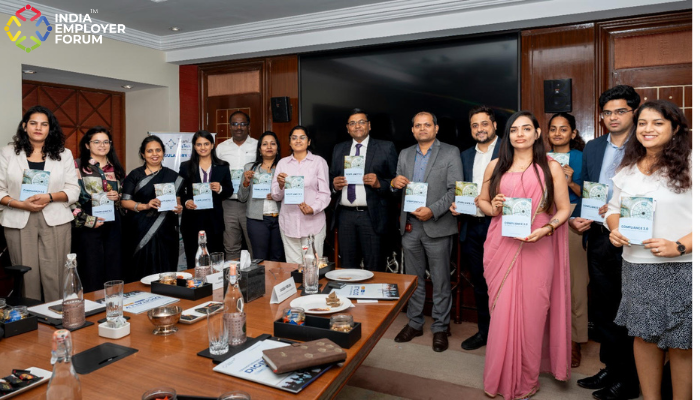The first TL RegTech roundtable of 2024, held in Mumbai, welcomed industry leaders and experts from various economic sectors. The agenda of the roundtable revolved around how ease of compliance is intricately linked to ease of doing business and the future of regulatory framework in light of an increasingly digitising economy. TL RegTech is the country’s leading regulatory technology company that is transforming compliance. Its digital solutions are trusted by over 1,500 entities and 25,000 enterprises in 45 industries, helping corporate India stay on the right side of the law.
Mr. Rishi Agrawal started the proceedings with the launch of the ‘Compliance 3.0 – Beyond Accidental Compliance’ report. The report gives insights into the inherent complexity that is present in the business regulatory ecosystem. It provides the reader with an overview of the challenges that persist in the present framework and the structural improvements that need to be made to improve the efficiency and effectiveness of regulations.
The roundtable had representatives from the retail sector, advertising and public relations, metallurgy, power transmission, IT and ITeS, and financial services. The discussion focused on how the three-vector framework of rationalisation, digitisation, and decriminalisation can be harnessed to simplify both the regulatory framework and compliance workflows for India Inc. While the Jan Vishwas (Amendment of Provisions) Act, 2023 was a milestone in decriminalising provisions, a lot of work has to be done. On the other side, businesses need to move towards digitisation of their compliance functions and processes to nurture a culture of compliance in their organisations. The recent RBI circular requiring all its regulated entities to integrate and adopt digital compliance tracking and management solutions is a herald of the times to come, with all sectoral regulators likely to mirror the directive.
The discussion then moved towards the recent Digital Personal Data Protection Act, 2023 and its oncoming regulations. The discussants had a thorough dialogue on its implications on data protection measures taken by businesses, data security, and employer compliances. The participants further discussed the creation of a central digital repository for key compliance documents, such as KYC. The central government had earlier announced (Union Budget 2023) the creation of Entity DigiLocker for MSMEs, large businesses, and charitable trusts). The need for a single window platform for KYC filings was also discussed with emphasis on redundancy in the present regulations.
The industry experts provided their assessments regarding the onerous nature of Regulation 30 of the LODR regulations. Corporations are encountering challenges in meeting the disclosure obligations stipulated in the aforementioned regulation. Due to missed deadlines, corporations in both the manufacturing and services sectors have admitted to struggling with SEBI compliance. Insufficient compliance officers and professionals are further exacerbating the intricacy of the circumstance.
The representatives had another round of discussion on the importance of training lawyers in their compliance teams. It was suggested that such lawyers must have a comprehensive understanding of the company’s business practices to fully understand and assess its compliance requirements and obligations.
A call to proactive compliance characterised the conclusion of the roundtable discussion. The participants in the discussion reached a consensus that the absence of notice service does not automatically imply that their organisation is fully compliant. It is, therefore, preferable to be well-informed about forthcoming obligations rather than be compliant by accident. Modern board members have acknowledged the necessity of establishing a compliance culture. They know that compliance oversight for the entire organisation does not fall solely on the compliance officer. It is the collective obligation of the entire organisation. The conversation concluded with the remark that although compliance may appear costly, it is inconsequential in comparison to the expense of noncompliance.



